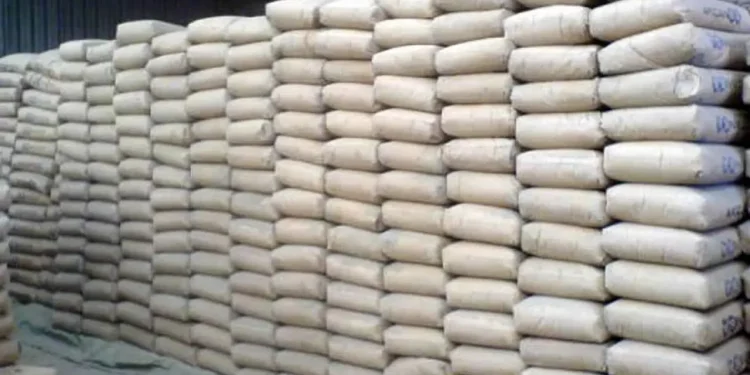Stakeholders have insisted there is the need for more manufacturers in the cement industry to make the products more affordable and increase annual production and consumption.
Going by 2024 budget, the increased budget allocations to critical sectors and ambitious infrastructure initiatives (N1.32 trillion to infrastructure, which represents 5.0 per cent of the total FG 2024 budget).
Hence, stakeholders stated that, there is the need for more players to be encouraged to come and participate in this industry because it is an important and very critical sector of the economy.
The country was blessed with abundant deposits of various raw materials required for cement production. At present, the Nigerian cement industry has three major players; Dangote Cement Plc, BUA Cement Plc and Lafarge Africa Plc for a country population of over 200 million.
In the beginning of 2024, the price of cement commodity has been on rise. The retail price of cement has risen from N5,000 in December, 2023 to about N10,000 before coming down to N7,000 per bag, depending on the location in the country.
Recently, the House of Representatives summoned Dangote, BUA and other cement manufacturers over what it described as arbitrary increase in the price of cement in the country.
Speaking on this, chief executive officer of Centre for the Promotion of Private Enterprise (CPPE), Dr. Muda Yusuf stated that, the major players in the sector are indigenous companies making giant strides amidst a very difficult operating environment including the multitudes of macroeconomic and structural headwinds.
He noted that the business of manufacturing is perhaps the most challenging enterprise in the contemporary Nigerian economy, saying, many foreign firms in that space have either exited the country or downsized their operations.
To him, “Cement production is highly energy intensive with gas being the major energy source. Gas is priced in dollars for manufacturers in the country, and they sell their products in naira. This is a major predicament for domestic manufacturers.
The implication of that for production cost is better imagined, especially in the light of the plunge in the value of the naira.
“The logistics cost of cement distribution is humongous, given the escalating cost of diesel and the state of the roads. Exchange rate depreciation is taking a huge toll on the cost of imported components of production inputs, including spare parts and machineries.
“Cost of fund is mounting as the CBN continues its aggressive monetary policy tightening. Latest headline inflation for February was 31.7 per cent. All these are variables which are not within the control of the manufacturers and which have profound impact on production and operating cost.”
He noted that, “admittedly, the risk of profiteering increases with monopoly powers in any economy and in any sector. This risk exists in the Nigeria cement industry as there are few dominant players. But this is a regulatory issue that could be addressed within the framework of the Federal Protection and Competition Act of 2018.”
Highlights from Investor Call with BUA Cement Plc said: “in a meeting held in January 2024, the government and cement players agreed that retail prices should be lower based on their respective ex-factory prices.
“Contrary to the notion that the price of cement was pegged, the government only encouraged lower prices. In addition, there were concerns that the middlemen were taking advantage of the peak cement demand season to pass additional operating costs to final consumers. The government and manufacturers decided to implement monitoring devices to ensure some stability in the retail price of cement.”
The company noted that the price of its cement in the market is relatively cheaper and even more so in market hubs with proximity to the plants.
The company also noted that despite the lower ex-factory price, which stemmed from the price slash in 2023, retail prices did not change much especially across other markets not within the plant’s proximity, saying, nevertheless, following the increasingly tough macroeconomic environment, the company adjusted its price upwards.
Analysts at CardinalStone Research emphasised that “despite the impressive growth, cement companies in Nigeria face several challenges. One of the major obstacles is inadequate infrastructure, particularly in terms of transportation and distribution networks.
“This makes it difficult for cement manufacturers to supply their products efficiently across the country. Furthermore, high production costs, regulatory issues, and fluctuations in the foreign exchange market also pose significant challenges to the industry.
“The future of the cement business in Nigeria appears promising. The Nigerian government’s focus on infrastructure development, affordable housing schemes, and urbanization drive will continue to fuel demand for cement. Additionally, ongoing reforms aimed at improving the business environment will attract more investments into the sector. With the right policies and investments in infrastructure, Nigeria has the potential to become a major exporter of cement in the global market.”



